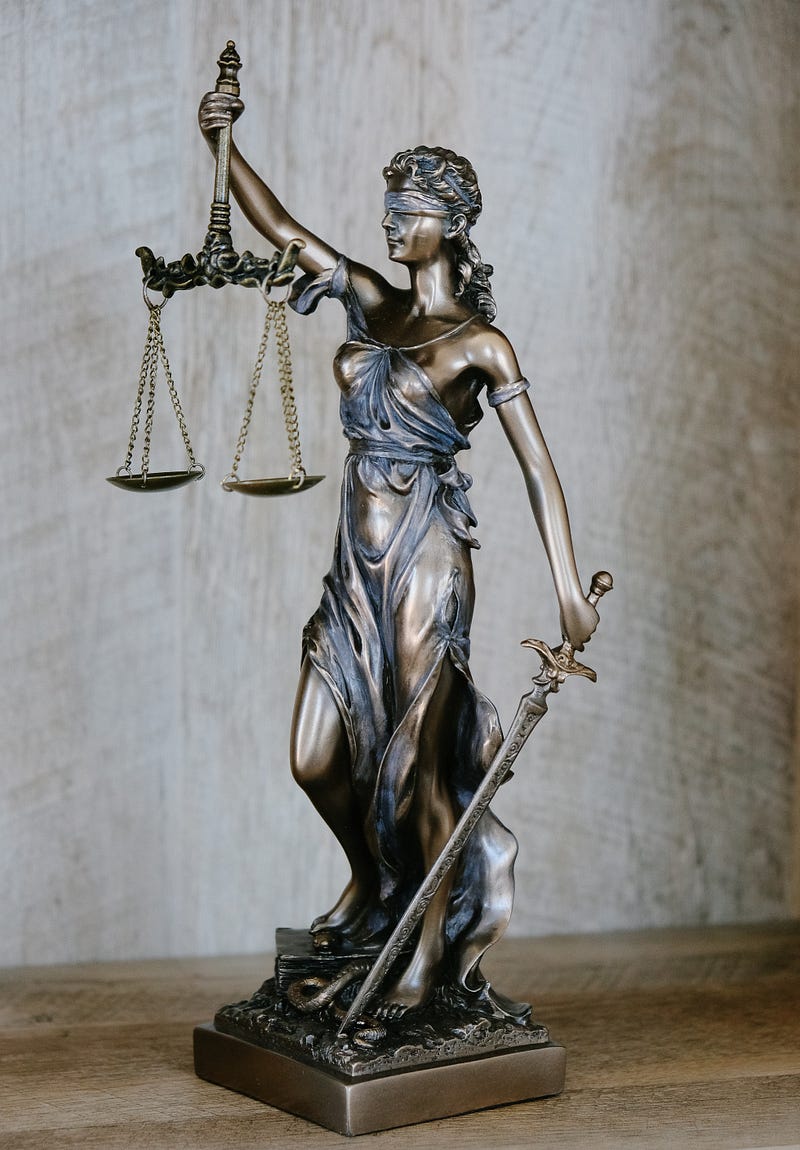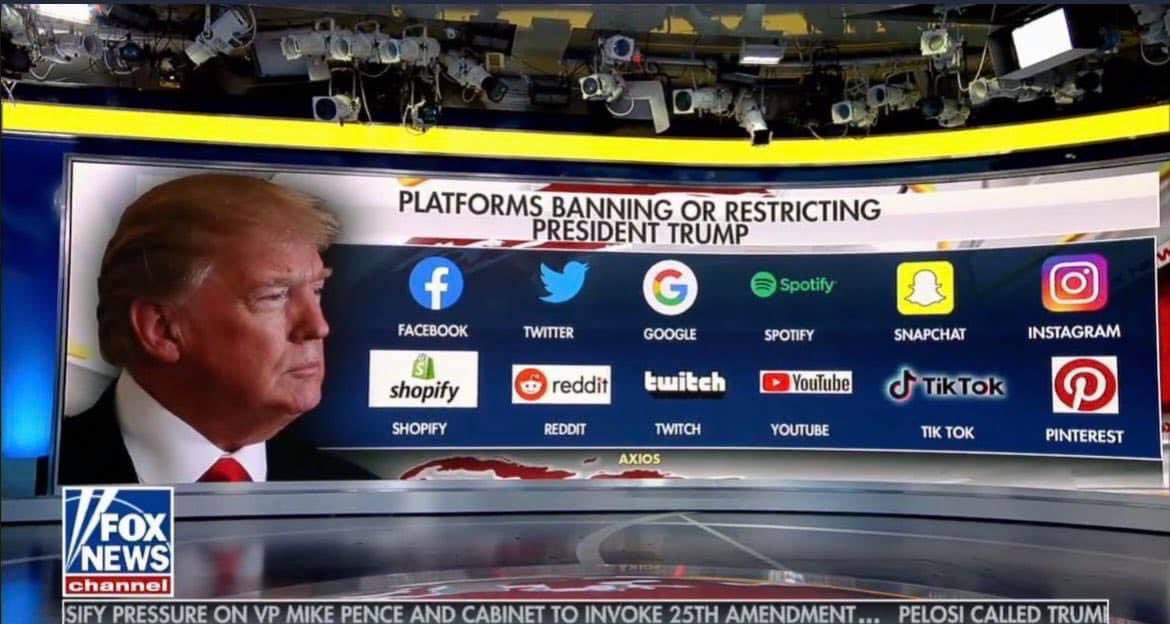
One of the many things that Donald Trump’s presidency made clear is that we need a digital bill of rights. A legal code to outline and protect the digital rights of global individuals and a system formed from our current systems of informal rules, mores, and norms. Because at the moment, we’re applying industrial age moral codes to digital age society which is not only ineffective, but divisive in the societal outcomes it produces.
We need a digital bill of rights designed with an understanding of the nuance of digital life. And and understanding of how digital life increasingly interacts with the physical world. A set of rules that distinguishes between digital and physical realities. Rules that have a measured understanding that our actions in one reality now have consequences in the other.
The internet used to be like an information superhighway with lots of coming and going for the purpose of gathering information and leaving messages. But increasingly, it’s becoming a place we have unique experiences and spend significant amounts of time. The world is becoming a hybrid of digital and physical world experiences. Our interactions online now have real world implications. This mixed reality requires new approaches to the rules governing public interaction.
The World Is Now a Mixed Reality: Digital + Physical
In the past decade, society formally integrated life with digital technology. The mobile smartphone is now ubiquitous and our daily interactions with one another became overwhelmingly digital. Screen time trackers indicate that most people spend a significant amount their days online. And all indications point to an increase in this trend. Because people spend more time online than ever before it changes how they interact with one another.
(When was the last time you checked your daily screen time tracker?)
As we’ve become more comfortable with incorporating digital reality into our daily lives, we’ve developed de-facto rules and norms to govern acceptable behaviors. But these are mostly informal rules. Some examples of informal rules include: the frowned upon practice of doxxing which is the targeted leaking of a persons private information, tagging potentially inappropriate content with NSFW or NSFL, proper internet etiquette like asking permission before sharing a photo of a friend on social media, and when you leave someone on “read” it’s seen as impolite.
These developing norms have formed because of physical world consequences. Like clicking an inappropriate link a friend sent while at work. Sharing a photo of a friend in a compromising setting, or revealing a persons location and exposing them to harassment. But for the most part, there are few hard rules or laws that establish the rights of individuals.
As a result, there is an inconsistent application of rules and norms across this hybridized digital society. And as life becomes more of a mixed reality, the lack of formal rules and rights will have a growing cost to society. And this price has been on display with the Donald Trump presidency.
Trump’s De-Platforming: What Happens Without a Digital Bill of Rights
Say what you will about Donald Trump, he has shown a firm understanding of how to build and leverage information capital assets. His 2016 election was made possible for many reasons but was primarily supported by his ability to build a national audience online without filtering his message through traditional media gatekeepers.
This unfiltered message appealed to many, while others found it repugnant. And like many people, my initial reaction to the recent Trump de-platforming from social media was that he should be banned from social media.
But after seeing the extent of the rug pull, I’ve become fearful of what it means for minority groups in the long run. Trump’s de-platforming highlighted an ongoing but quiet process of how tech companies can effectively eliminate a person’s digital presence for good. In simple terms, these big tech companies used tactics similar to the US Governments Sanction playbook against Donald Trump and the Alt-Right.
And while I may be glad to see Trump off Twitter, I am growing concerned that we’ve entered a moral gray area. Where a lack of formal rules and regulations creates an environment where mob outrage (and not well designed law) dictates who remains platforms and who does not.

Moral Gray Area
This opens the door for the use of de-platforming with greater ease in the future against individuals and minority groups. Why? Because de-platforming of Trump and the Alt-Right contingent is not morally complex. It’s easy to sell a majority of people on the value of removing voices that preach violence. But many Alt-Right individuals are being lumped into this broad category. They are being banished from the digital world for spreading “misinformation”, not direct calls for violence.
And this is a moral gray area.
Watching the extent of the de-platforming take place should be alarming to anyone that understands the direction we’re headed in the digital age. Because it shows the extent to which this platform silencing can impact a person or groups ability to exist in the digital age. It will be easier to do it again in the future now that the highest profile de-platforming possible has been done on such a public scale.
De-Platforming a Person is like Sanctioning a Government
Sanctions are policies that seek to exclude a country or individual from the global financial system. They are non-violent punitive measures that can cause significant financial harm to the target and it’s allies.
Sanctions are indirect measures that inflict financial punishment in the digital age. And de-platforming functions as a sanction in the digital age because they harm the targets ability to cultivate information capital assets. These assets becoming one of the primary wealth generating vehicles of the digital age. By preventing access to these platforms, it is in effect, indirectly implementing financial punishment on individuals and minority groups.
The Digital Sanction Playbook:
- Trump temporarily suspended from Twitter, Facebook, and Youtube. Then permanently banned. Removing access to new forms of audience growth and digital distribution channels.
- Trumps Shopify store closed down, removing ability to profit from highly interoperable e-commerce.
- Parlor de-platformed from Apple and Google App stores. Punish platforms and allies that support the sanctioned individual or group.
- Senator Hawley book deal rescinded with publisher. Punish allies by removing their ability to sell products through traditional distribution channels.
- Thousands of accounts purged from Twitter in the span of 24 hours following Trumps removal. Punish allies of the undesirable by removing access to public goods, services, and resources.
- Stripe removes payment processing for Trump’s campaign website. Remove the ability of the undesirable to secure funding for themselves.
- Amazon Web Services bans Parler App. Preventing the undesirable and it’s allies from having cheap web hosting services.
- Twilio suspends Parler app. In doing so, prevents the undesirables allies from easily achieving digital interoperability. A key ingredient for digital first companies.
Sanctions force businesses and potential allies to choose whether to work and support the undesirable or face real digital age consequences. Make no mistake, these actions greatly matter in the digital age.
Where This Likely Leads Next?
Imagine you believe the political establishment has robbed you of fair representation. And then, the largest tech companies (frequently synonymous with the intellectual elite) remove your voice from the increasingly important digital world. And you know that there are nearly 80 million other people that think like you. It’s likely that these people take to the streets in violence so that their voices will be heard. This opens the door for prolonged conflict.
It makes me think of the Cold War and how our inability to communicate with one another exacerbated the underlying conflict. Conflict arises when neither side can find a way to effectively communicate with the other. After the Cuban Missile Crisis, the US and the USSR opened a direct line of communications to deescalate. As was the case during this crisis, de-platforming a considerable number of the political opposition will result in further conflict, not less. It’s imperative that we find ways to foster an effective and constructive dialogue between political factions.
The quality of any future dialogue will hinge on the development of a digital bill of rights.
Without a digital bill of rights, these minority groups will find themselves increasingly under threat of de-platforming. In the face of these threats and without government protections, they will look to embrace violence and use decentralized web technologies. The push to decentralization will further erode government power and in a way, drive political dissidents underground, out of site and out of reach.
Governments will ultimately become incentivized to deescalate conflict by providing basic guarantees of internet access via a digital bill of rights.
Developing a Digital Bill of Rights Starts with Asking The Right Questions
In order to create a digital bill of rights, we have to ask our collective society the correct questions. We need answers that address the moral gray areas that are developing.
- Is access to the internet becoming a human right?
- Will digital read/write permissions have equal weighting or become a moral fault line?
- ie: Should you be entitled to access free content in “public squares”? And should you be guaranteed an ability to add information to the “public squares” of the internet? In essence, are you entitled to a digital a voice?
- And what constitutes a “public square” versus a private forum? Are social app’s like Twitter, Facebook, and YouTube becoming de-facto public squares? If yes, how should they be regulated? What rights do private companies have that manage digital public squares?
- Do you have a right to earn a living exclusively on the internet? What if the act of de-platforming results in the loss of a majority of your earnings?
The digital world is the most dynamic shared reality civilization has ever experienced. The number of “lived experiences” that are combined to create universal truth number 4 billion people. Each year more people come online and interact with one another in new ways. We cannot afford to operate as is because our digital interactions are increasingly meaningful in the physical world. We must address the fundamental issues that create moral gray areas or risk an increasing amount of conflict.
I’m building a digital age worldview. Every Monday, I write and curate a publication called The Sovereign Individual. It’s a weekly newsletter that includes news roundups and analysis to help digital age workers adapt and thrive in our changing society. Topics intersect at geopolitics, fintech, crypto, individual responsibility, and personal freedom. Don’t get left behind, subscribe below.